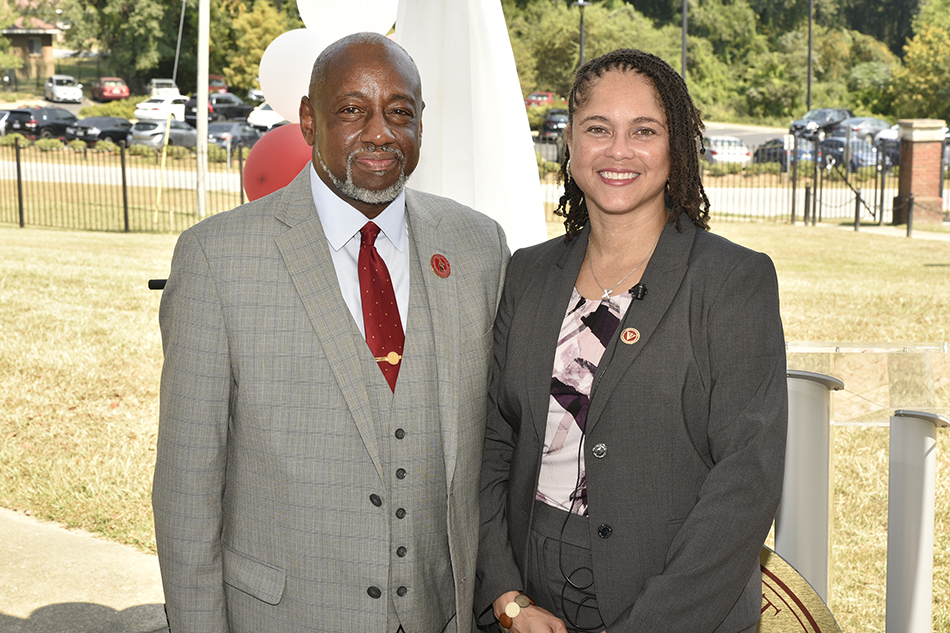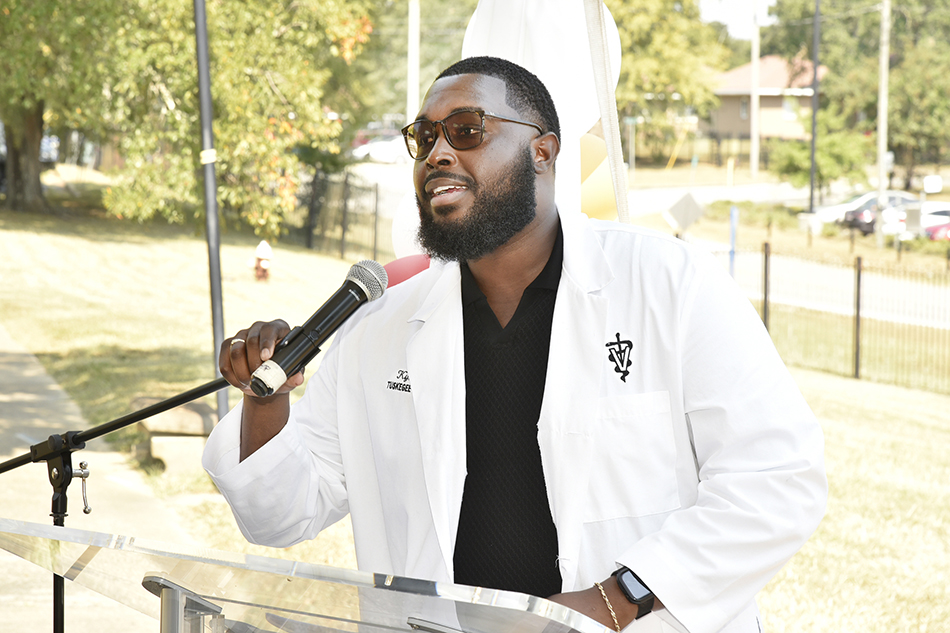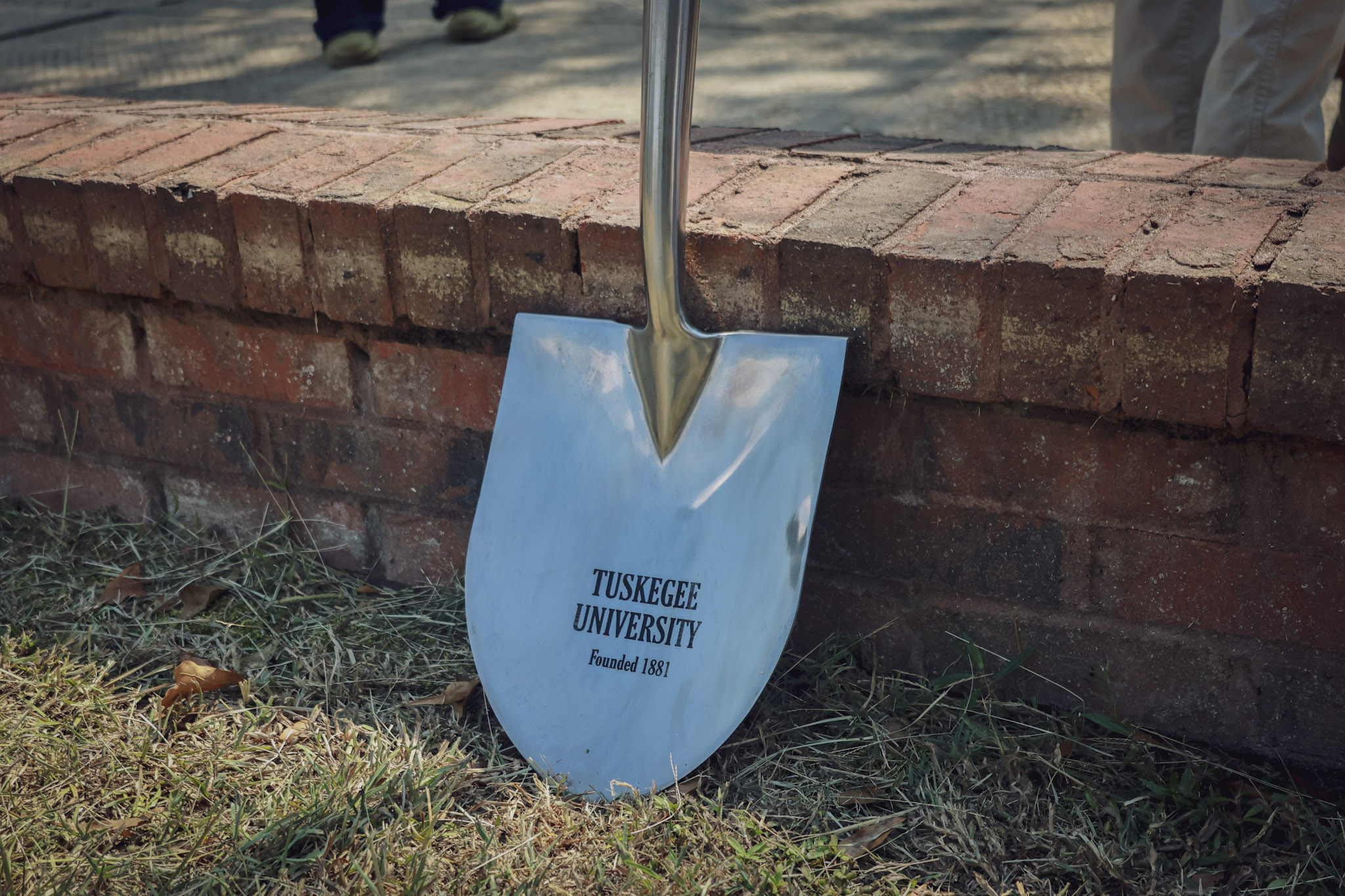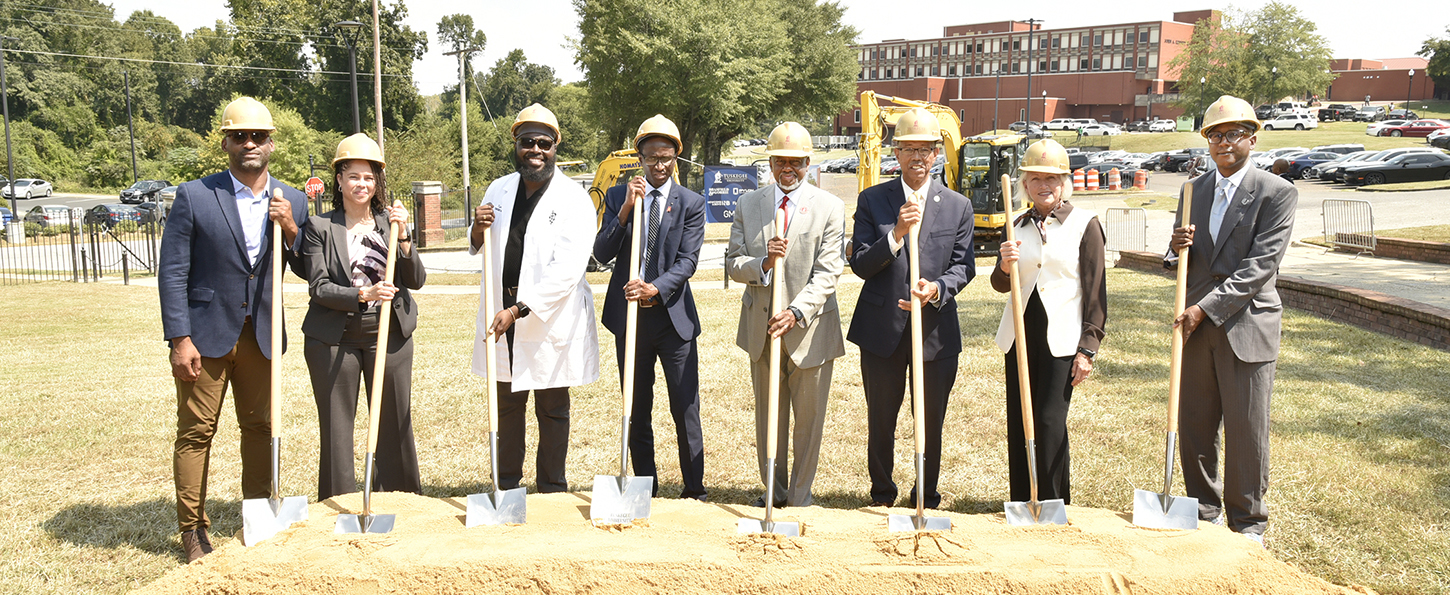 The Tuskegee University College of Veterinary Medicine (TUCVM) turned the soil on a new 57,000-square-foot small animal teaching hospital to continue the university’s unmatched 80-year legacy as a leader in training veterinarians in the United States.
The Tuskegee University College of Veterinary Medicine (TUCVM) turned the soil on a new 57,000-square-foot small animal teaching hospital to continue the university’s unmatched 80-year legacy as a leader in training veterinarians in the United States.
Founded in 1945, TUCVM has trained over 70 percent of African American veterinarians in the United States and currently boasts the most diverse student body among all U.S. colleges of veterinary medicine.
“And now we are investing in the next 80 years,” said Dr. Mark A. Brown, president and CEO. “When there was no other vet school for students to come to, there was Tuskegee University. And 80 years from now, students will still be training to become doctors of veterinary medicine here at Tuskegee.”
Dr. Brown also shared that the state-of-the-art facility will come to be without creating additional debt for the university. The university invested a major portion of a $20 million gift from MacKenzie Scott in 2020, which allowed the university to use the interest from that investment for this project.
“This is an $18 million investment and Tuskegee is doing this without debt,” he said. “We are able to do this debt free because of wise decisions and good stewardship of our Board of Trustees, led by Chairwoman Norma Clayton, and institutional advancement leaders, always in service to Mother Tuskegee.”
 The new small animal hospital is being designed to be a cutting-edge teaching hospital and will greatly expand TUCVM’s clinical capabilities. It will include space for advanced diagnostic and specialty care including modern imaging suites, surgery operating rooms, and intensive care units.
The new small animal hospital is being designed to be a cutting-edge teaching hospital and will greatly expand TUCVM’s clinical capabilities. It will include space for advanced diagnostic and specialty care including modern imaging suites, surgery operating rooms, and intensive care units.
“The promise these new facilities represent for generations of veterinary professionals to come is only the beginning of this exciting journey,” said Dr. Ebony Gilbreath ’04, Interim Dean of the College of Veterinary Medicine. “With this symbolic gesture today, we officially break ground with the first step in transforming this vision into a reality. Thank you to everyone who joined this momentous occasion to make this celebration possible.”
The groundbreaking was Phase I of a project that includes the teaching hospital and a preclinical instruction building. The facility will also consolidate critical support services under one roof, increasing efficiency and faster turn-around times for students and the small animals they treat. A modernized reception and waiting area will ease access for the surrounding Macon County community, which has for decades relied on Tuskegee for animal care that can be hard to find.
“Tuskegee’s veterinary program has always been a lifeline to our community,” said Dr. Dana Fuller ’03, president of the Tuskegee Veterinary Medical Alumni Association. “I am elated to see the school expand. “The alumni association is always looking for ways to be a bridge between the alumni, the students and the school, even by just being here today to celebrate this step forward.”
 Kyle Jorel Frett will become “Dr. Frett” when TUCVM graduates its class in May 2026. The fourth-year student remembers that “there was no question that Tuskegee was the right fit for me,” when asked about choosing to study at Tuskegee. His passion for equine surgery was first sparked following his undergraduate work at Fort Valley State University. “I knew I wanted to be a part of that legacy of world-class training and mentorship and I knew I would only get it here.”
Kyle Jorel Frett will become “Dr. Frett” when TUCVM graduates its class in May 2026. The fourth-year student remembers that “there was no question that Tuskegee was the right fit for me,” when asked about choosing to study at Tuskegee. His passion for equine surgery was first sparked following his undergraduate work at Fort Valley State University. “I knew I wanted to be a part of that legacy of world-class training and mentorship and I knew I would only get it here.”
The construction project is being managed by Tuskegee’s Facilities department in partnership with Flad Architects and the Pylon Building Group.
“Every wall raised will be a living classroom,” said Reggie Torbor, president of Pylon Building Company, the contractor for the build.
“I believe in the white coats and all of those who haven’t yet earned their white coat,” said Dr. Brown, who spoke of two Doberman Pinscher puppies soon to join him and First Lady Brown in Grey Columns. “Our puppies, Crimson and Piper, will become patients of the small animal clinic. We trust and respect the work you are doing, and we are with you. The Board of Trustees and the Cabinet are with you.”



 The Tuskegee University College of Veterinary Medicine (TUCVM) turned the soil on a new 57,000-square-foot small animal teaching hospital to continue the university’s unmatched 80-year legacy as a leader in training veterinarians in the United States.
The Tuskegee University College of Veterinary Medicine (TUCVM) turned the soil on a new 57,000-square-foot small animal teaching hospital to continue the university’s unmatched 80-year legacy as a leader in training veterinarians in the United States. The new small animal hospital is being designed to be a cutting-edge teaching hospital and will greatly expand TUCVM’s clinical capabilities. It will include space for advanced diagnostic and specialty care including modern imaging suites, surgery operating rooms, and intensive care units.
The new small animal hospital is being designed to be a cutting-edge teaching hospital and will greatly expand TUCVM’s clinical capabilities. It will include space for advanced diagnostic and specialty care including modern imaging suites, surgery operating rooms, and intensive care units. Kyle Jorel Frett will become “Dr. Frett” when TUCVM graduates its class in May 2026. The fourth-year student remembers that “there was no question that Tuskegee was the right fit for me,” when asked about choosing to study at Tuskegee. His passion for equine surgery was first sparked following his undergraduate work at Fort Valley State University. “I knew I wanted to be a part of that legacy of world-class training and mentorship and I knew I would only get it here.”
Kyle Jorel Frett will become “Dr. Frett” when TUCVM graduates its class in May 2026. The fourth-year student remembers that “there was no question that Tuskegee was the right fit for me,” when asked about choosing to study at Tuskegee. His passion for equine surgery was first sparked following his undergraduate work at Fort Valley State University. “I knew I wanted to be a part of that legacy of world-class training and mentorship and I knew I would only get it here.”